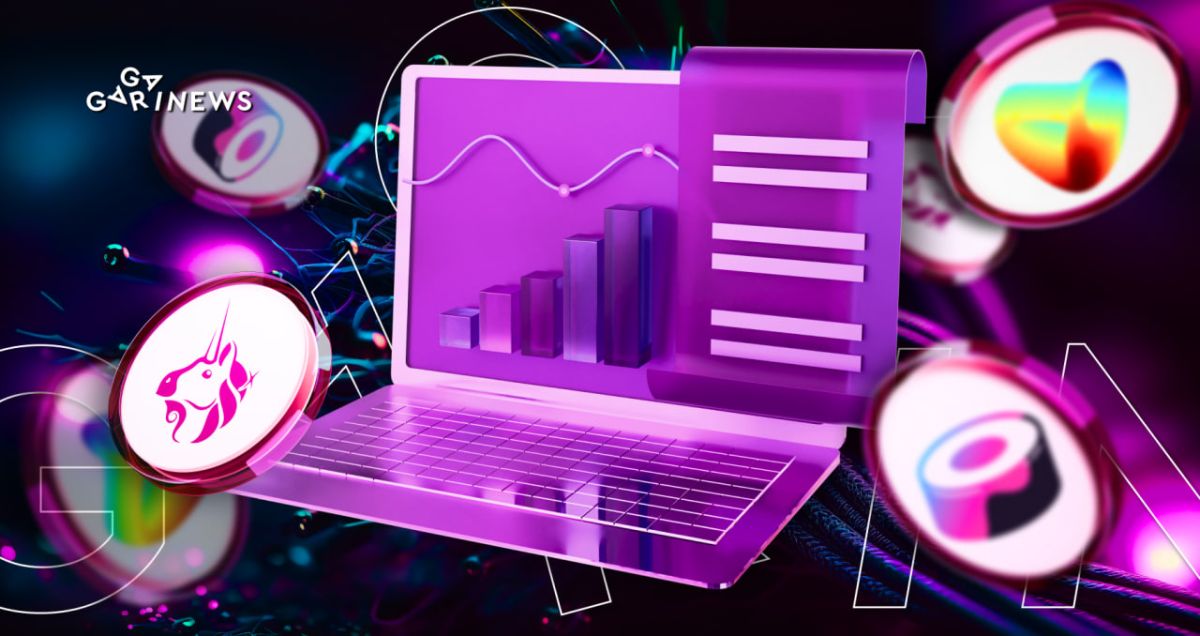DeFi Exchanges 2023: The Best Platforms

In just a few years, DeFi platforms have considerably altered our vision of future financial systems. We’ve witnessed a notable departure from traditional centralized models in the way we handle and store our assets.
On this page
Many esteemed analysts predict that this trajectory will persist in the upcoming years. The consistent rise in daily trading volumes underscores an expanding user base keen on eliminating superfluous intermediaries.
While centralized exchanges currently hold sway, primarily serving major stakeholders and institutional investors, newcomers increasingly gravitate toward DeFi platforms. Here, they encounter a wider array of tradable assets and have a say in decision-making, ensuring their perspectives are heard.
Moreover, CEXs don't always ensure the security of users' funds, especially if led by less-than-reliable figures like Sam Bankman-Fried. The assets lost in the aftermath of the FTX downfall surpassed the cumulative losses from all cyberattacks targeting decentralized platforms and smart contracts in the DeFi ecosystem.
We delved deep into the contrasts between DeFi and CeFi models in a prior piece, so we won't retread that ground here.
Instead, here's a brief overview of the top DeFi exchanges as we see them in 2023.
Uniswap: The Clear Leader
Uniswap, built on the Ethereum blockchain, utilizes the Automatic Market Maker (AMM) model, enabling users to trade directly with each other from their personal wallets. As of now, this platform sets the standard in terms of its intuitive interface, broad support for ERC20 tokens, and attractive incentives for liquidity providers.
Users on Uniswap are charged a standard fee of 0.3% for each transaction. Those who provide liquidity to Uniswap earn a portion of these transaction fees, with their share being determined by the amount of assets they've committed to the liquidity pool.
The open-source code of Uniswap has paved the way for a surge in other decentralized exchanges and DeFi projects. This open framework allows developers to craft and introduce their own platforms, a process somewhat akin to franchising, yet without the stringent brand conformity often associated with it.
Uniswap's ecosystem boasts over 70 projects. Source: uniswap.org
As a trailblazer, Uniswap has reshaped the financial landscape, offering other platforms an accessible entry point into the world of DeFi.
SushiSwap: Rewarding Staking
Originating from Uniswap's codebase, SushiSwap stands as a prime player in the realm of staking instruments. Its native SUSHI token has transitioned from being merely a governance and reward tool to a highly sought-after investment asset.
What sets SushiSwap apart from other Ethereum-driven DEX platforms is its enhanced profit prospects for liquidity providers. It's important to underline, however, that SushiSwap is currently grappling with some challenges, as no project has been able to smoothly navigate the complexities of SEC oversight.
SushiSwap's trading volumes plummeted after the SEC subpoena. Source:sushi.com
The success of SushiSwap is closely tied to its adept use of the Uniswap staking model. The incentives crafted by its developers provide compelling rewards for liquidity providers, which in turn boosts the appeal of the SUSHI token.
Curve Finance: A Focus on Stablecoins
For traders seeking low-slippage swaps with minimal risk, Curve Finance is a perfect platform. Designed to optimize returns when trading stablecoins, it's a magnet for liquidity providers.
Earnings distribution diagram on Curve Finance. Source: crypto robin
Currently, Curve Finance supports an extensive array of blockchains. As of this article's publication, it holds the second spot in daily trade volume among DeFi platforms, right after Uniswap.
Curve offers its native token, CRV, which can be either purchased directly or acquired by supplying liquidity to designated pools.
Trading stats for Curve. Source: dune.com
Compound Finance: Lending and Borrowing
Beginning as an algorithmic protocol in the DeFi landscape, Compound Finance enabled users to benefit from furnishing liquidity for loans. Its ingenious application matches lenders with borrowers using smart contracts.
However, the team didn't stop there. They broadened the project's horizons, launching a decentralized trading platform. Through this, users can effortlessly trade Ethereum blockchain tokens within the Compound ecosystem.
The initiative has morphed into an all-inclusive solution for those eager to navigate multi-platform trading. Yet, lending remains the most sought-after service on Compound.
Balancer: Pools Can Be Smart
Balancer stands out in the crowd with its smart pool concept. This dedicated application is designed to auto-balance portfolio assets, maximizing returns while minimizing the need for frequent manual tweaks. It not only offers users prime trading capabilities but also spares them time.
One limitation to note is that this application is tailored for assets on the Ethereum, Polygon, and Arbitrum blockchains.
Balancer boasts commendable liquidity metrics. Source: balancer.fi
Balancer's native token, BAL, introduces an added incentive layer. Participants can earn rewards for a range of activities.
Overall, Balancer positions itself as a formidable contender in the DeFi space. Its main drawback is that the platform might be a bit daunting for novices. Before diving into portfolio rebalancing, it's wise to get a feel on platforms with simpler interfaces.
The content on The Coinomist is for informational purposes only and should not be interpreted as financial advice. While we strive to provide accurate and up-to-date information, we do not guarantee the accuracy, completeness, or reliability of any content. Neither we accept liability for any errors or omissions in the information provided or for any financial losses incurred as a result of relying on this information. Actions based on this content are at your own risk. Always do your own research and consult a professional. See our Terms, Privacy Policy, and Disclaimers for more details.






























